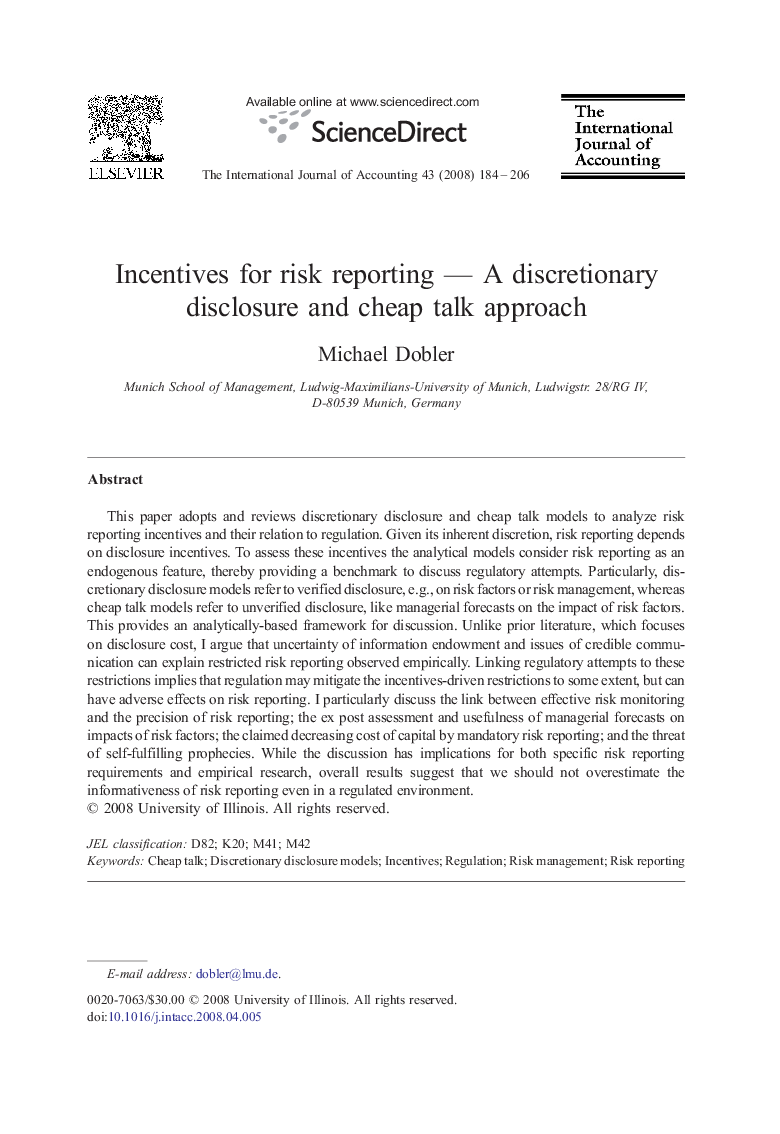| Article ID | Journal | Published Year | Pages | File Type |
|---|---|---|---|---|
| 1005273 | The International Journal of Accounting | 2008 | 23 Pages |
This paper adopts and reviews discretionary disclosure and cheap talk models to analyze risk reporting incentives and their relation to regulation. Given its inherent discretion, risk reporting depends on disclosure incentives. To assess these incentives the analytical models consider risk reporting as an endogenous feature, thereby providing a benchmark to discuss regulatory attempts. Particularly, discretionary disclosure models refer to verified disclosure, e.g., on risk factors or risk management, whereas cheap talk models refer to unverified disclosure, like managerial forecasts on the impact of risk factors. This provides an analytically-based framework for discussion. Unlike prior literature, which focuses on disclosure cost, I argue that uncertainty of information endowment and issues of credible communication can explain restricted risk reporting observed empirically. Linking regulatory attempts to these restrictions implies that regulation may mitigate the incentives-driven restrictions to some extent, but can have adverse effects on risk reporting. I particularly discuss the link between effective risk monitoring and the precision of risk reporting; the ex post assessment and usefulness of managerial forecasts on impacts of risk factors; the claimed decreasing cost of capital by mandatory risk reporting; and the threat of self-fulfilling prophecies. While the discussion has implications for both specific risk reporting requirements and empirical research, overall results suggest that we should not overestimate the informativeness of risk reporting even in a regulated environment.
